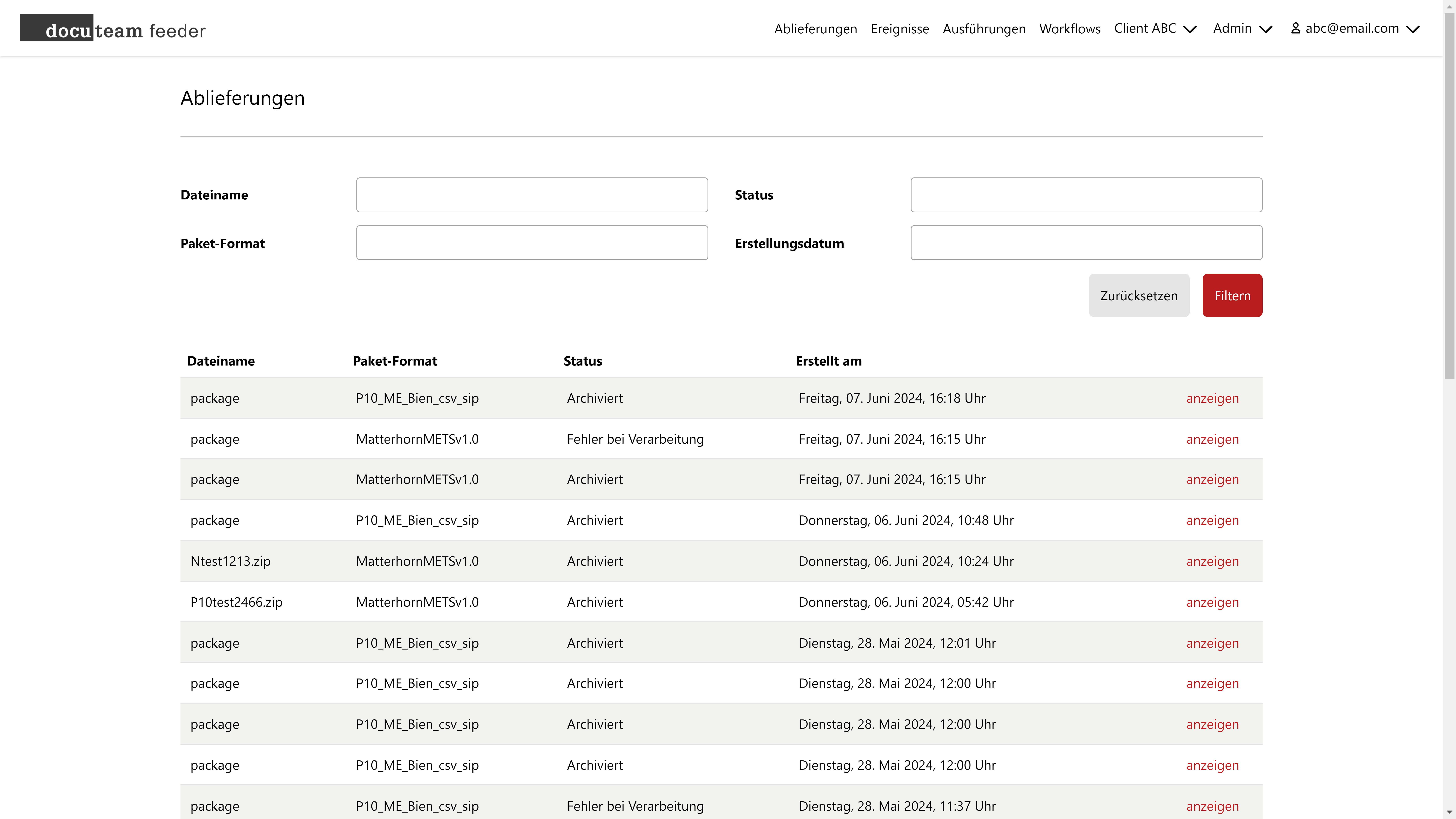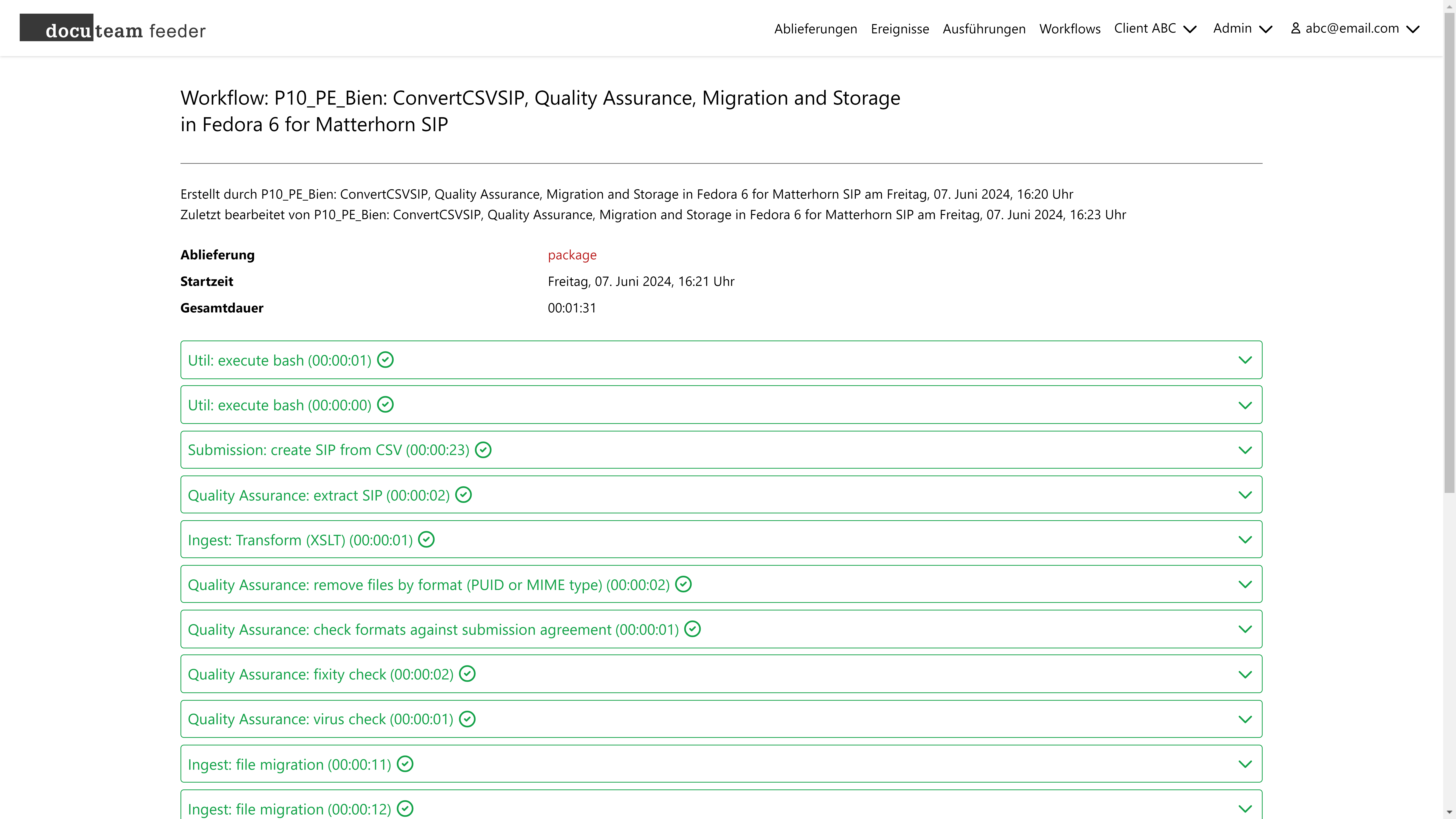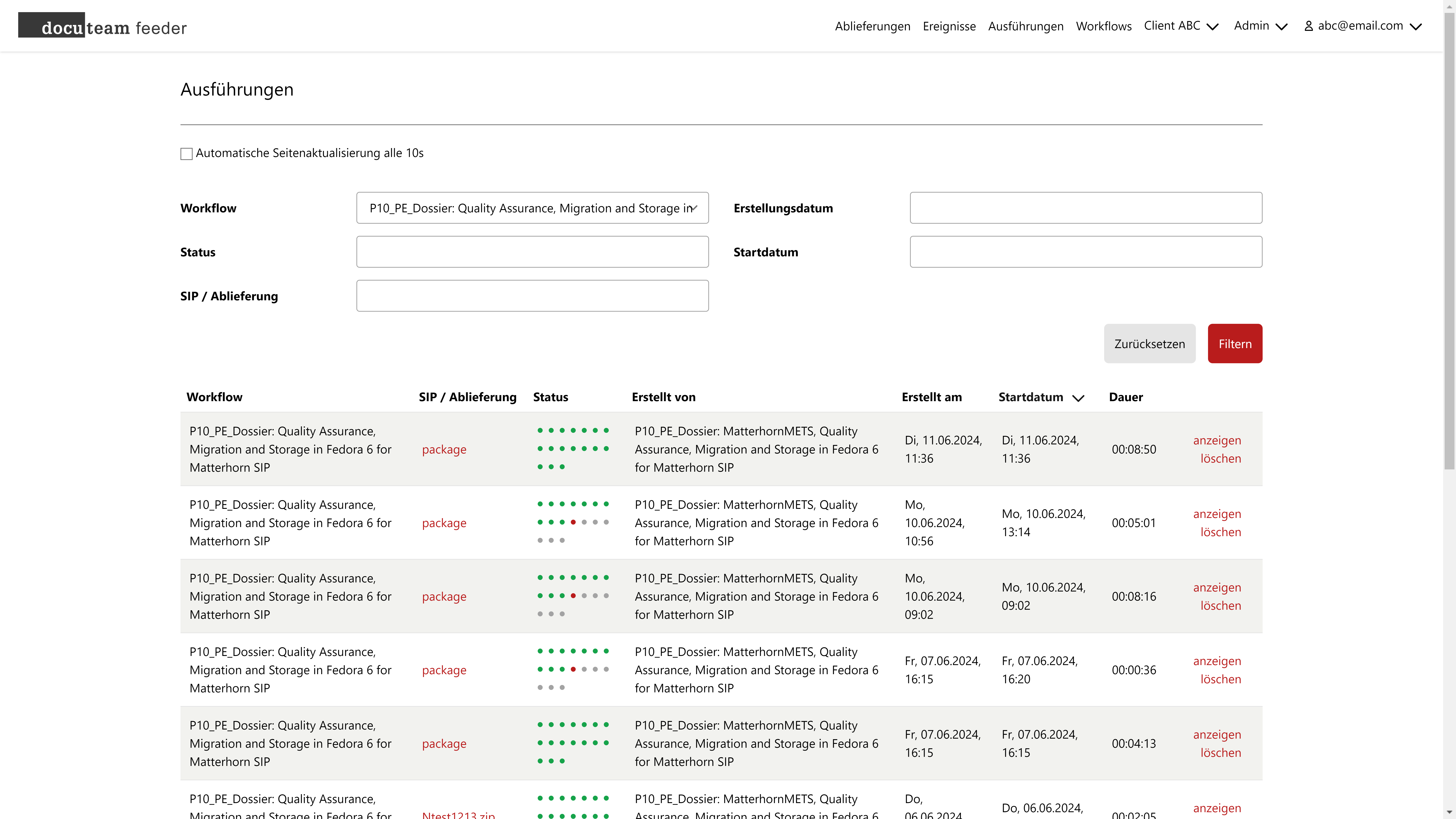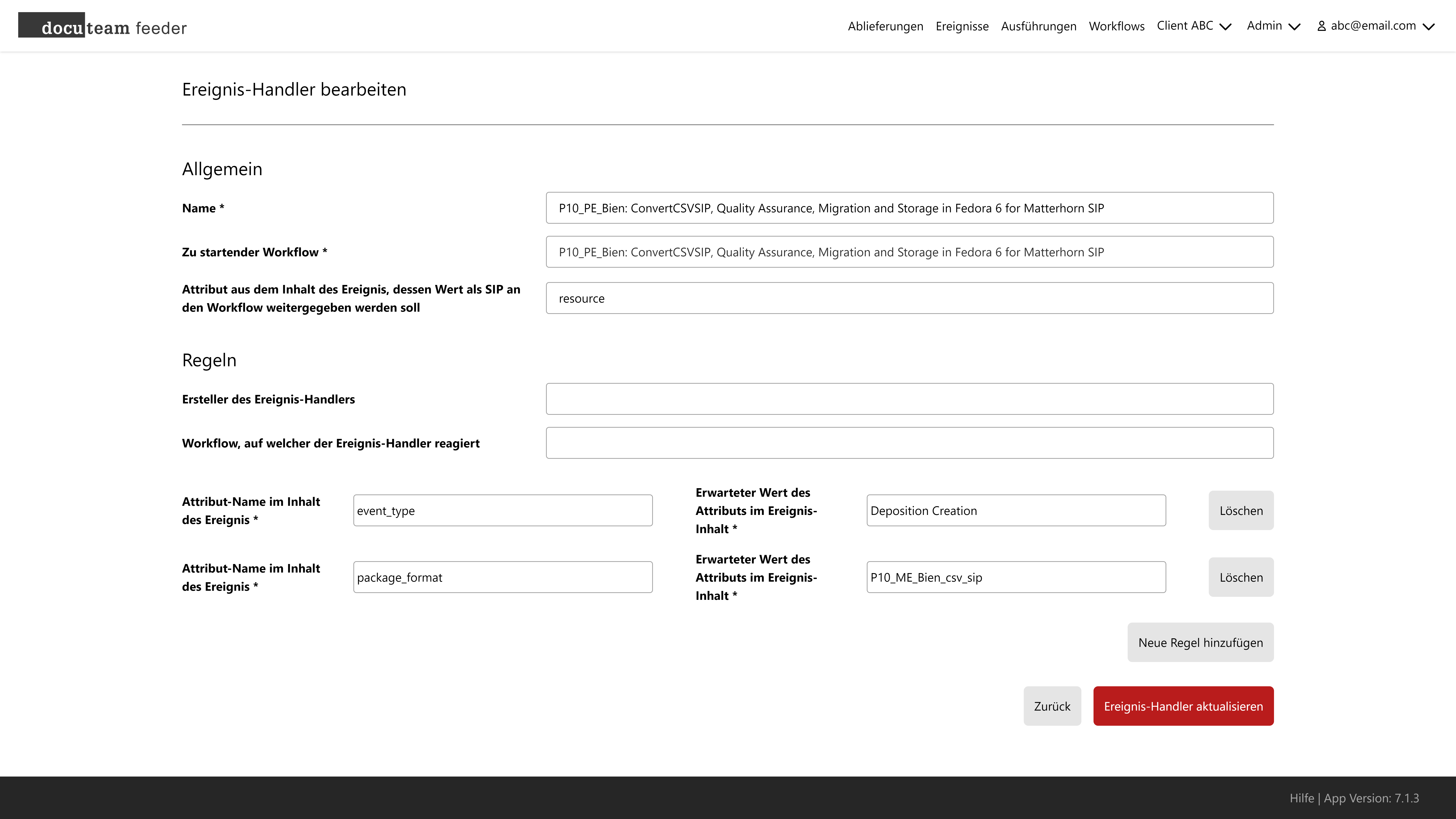With docuteam feeder, data is migrated, validated, modified and finally stored in the repository in a controlled manner. docuteam feeder offers a graphical user interface for the creation and execution of workflows. These workflows can be customized from various modules according to the respective requirements.

Automation
docuteam feeder can be operated manually, but also offers the necessary interfaces and processing logic to achieve a high or even complete degree of automation. This allows the processing of large volumes of depositions from production systems.
Depositions
Data can be uploaded to the web interface of docuteam feeder and then processed using a workflow. Depositions can also be created via an API.

Workflows
The data passes through a so-called workflow. A workflow is made up of various ‘steps’ that are processed one after the other in a pipeline. A single step has a precisely defined task. docuteam feeder provides a large number of such steps. However, both new workflows and new steps can be created and configured, for example to integrate additional migration tools or to extend the ingest process with additional functionalities. A workflow can be provided with a schedule in order to start it automatically according to a frequency. Workflow executions can be linked with event rules so that a next workflow is automatically started when a workflow is successfully completed or fails.

SIP creation, file migration, quality check, metadata enrichment and more
The software libraries docuteam actions and docuteam actions-js provide docuteam feeder with a wide range of actions and processes. These include all the necessary steps for creating a so-called ‘Submission Information Package’ (SIP), quality checks, migration of files into formats suited for digital preservation, virus checks, metadata enrichment and other processes.
Executions
The filterable list of all workflows that have been executed and are currently being executed allows you to keep track of the processing progress.

Events and event handlers
Events are simple data structures that are either submitted via an API or generated internally in docuteam feeder. Event handlers can be used to specify which workflow(s) are started based on which properties of an event. Use cases are, for example, the automatic start of a workflow when a deposition of a certain type is received, the chaining of workflows or the creation of executions based on a data query.

Deposition formats, package format and metadata standards
The SIP standard used in docuteam feeder is Matterhorn METS. Matterhorn METS is a generic data and metadata model that is not tied to a specific context of use and can be used for archiving a wide variety of digital objects. In practice, Matterhorn METS is currently used in historical archives, museums and libraries, for research data and in business data archiving.
Matterhorn METS has been registered with the Library of Congress since 2012 and is based on widely used, established and publicly available standards:
- METS (Metadata Encoding and Transmission Standard) as a container format
- PREMIS (Preservation Metadata Implementation Strategies) for technical and administrative metadata
- EAD (Encoded Archival Description) for descriptive metadata
In addition to Matterhorn METS, docuteam cosmos supports numerous package formats for ingest, such as eCH-0160, EDIDOC, SEDA, docuteam DC 1.0 or docuteam DC csv. However, data can also be transferred that is not available in an official standard but has a structure of some kind that is processed by docuteam feeder.
API
In addition to the web interface, docuteam feeder also offers an Application Programming Interface (API) to initiate and monitor processes in docuteam feeder and to communicate with external systems.
- Deposition API
This API can be used to create depositions. When a deposition is created, an ID is returned. This ID can be used to query the status of the deposition via the API and (after successful archiving) the persistent identifiers of the archived objects. - Event API
This API can be used to create events in docuteam feeder and retrieve either a list of events or the details of a single event. - Workflow Executions API
The API for workflow executions can be used to list workflow executions, to retrieve details of an execution and to start a workflow execution.
And much more
FAQ
We are always available to answer your questions and discuss your specific concerns and needs.
The original files can either be kept or deleted.
Using DROID and classification according to the PRONOM format registry.
Yes, the various activities are logged using PREMIS and added to the archive packages.
docuteam feeder can be configured very flexibly and is able to take over data in basically any form. If metadata is to be transferred from the original systems, it must be available in a structured form. A transfer process is then implemented based on the existing conditions and an analysis of which data and metadata is to be transferred and in what form. This can be done e.g. for document management systems or specialized applications and databases.
No, there are a wide range of automation options.
No, we can merge the primary data (files) and metadata (descriptions) during the ingest.
Yes, either your system imports a file created by docuteam feeder or it provides an interface for the import of such data.
docuteam feeder is constantly being developed and new functionalities are being added all the time. The roadmap can be found here: https://docs.docuteam.ch/roadmap/
